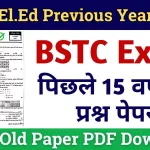KSLU previous year question papers are essential for law students to understand exam patterns and prepare effectively. They provide insights into important topics, types of questions, and answer formats. This helps in building confidence and improving performance in exams. Below are questions and answers categorized by subjects to aid preparation.
Constitutional Law
Question: What is the significance of the Preamble in the Indian Constitution?
Answer: The Preamble outlines the objectives and principles of the Constitution, such as justice, liberty, equality, and fraternity, serving as its guiding philosophy.
Question: Explain the Doctrine of Basic Structure.
Answer: The Doctrine of Basic Structure, established in the Kesavananda Bharati case, ensures that Parliament cannot amend the Constitution in a way that alters its fundamental framework.
Question: What are the Fundamental Rights guaranteed under the Indian Constitution?
Answer: Fundamental Rights include the right to equality, freedom, against exploitation, freedom of religion, cultural and educational rights, and constitutional remedies.
Question: What is the difference between Article 32 and Article 226?
Answer: Article 32 allows individuals to approach the Supreme Court for enforcement of Fundamental Rights, while Article 226 enables them to approach High Courts for the same.
Question: Define the concept of separation of powers.
Answer: Separation of powers divides government responsibilities into the legislative, executive, and judiciary branches to prevent concentration of power.
Question: Discuss the Right to Equality under Articles 14-18.
Answer: Articles 14-18 ensure equality before the law, prohibition of discrimination, equality of opportunity, abolition of untouchability, and abolition of titles.
Question: What is the importance of Directive Principles of State Policy?
Answer: Directive Principles guide the state in implementing social and economic reforms to achieve the ideals of justice, liberty, equality, and fraternity.
Question: How does the Constitution of India ensure the independence of the judiciary?
Answer: Provisions like the appointment process, security of tenure, and financial autonomy ensure judicial independence.
Question: What is the procedure for amending the Constitution?
Answer: Amendments can be made under Article 368 through a simple majority, special majority, or special majority with state ratification.
Question: Explain the role of the President in the legislative process.
Answer: The President summons and prorogues sessions, gives assent to bills, and can promulgate ordinances when Parliament is not in session.
Question: What is the difference between Parliamentary and Presidential forms of government?
Answer: In a Parliamentary system, the executive is accountable to the legislature, while in a Presidential system, the executive and legislature function independently.
Question: Define the concept of federalism in the Indian Constitution.
Answer: Federalism in India involves a distribution of powers between the central and state governments, with a strong unitary bias.
Question: What is the significance of the Ninth Schedule of the Indian Constitution?
Answer: The Ninth Schedule protects laws from judicial review, ensuring they cannot be challenged for violating Fundamental Rights.
Question: Explain the term “State” under Article 12.
Answer: “State” includes the government, Parliament, state legislatures, local authorities, and other authorities within India.
Question: Discuss the concept of judicial review.
Answer: Judicial review allows courts to assess the constitutionality of legislative and executive actions.
Question: What is the role of the Attorney General of India?
Answer: The Attorney General is the chief legal advisor to the Government of India and represents it in legal matters.
Question: Explain the importance of Article 370.
Answer: Article 370 provided special autonomy to Jammu and Kashmir, allowing it to have its own Constitution and laws.
Question: What are the emergency provisions under the Indian Constitution?
Answer: Emergency provisions include national, state, and financial emergencies under Articles 352, 356, and 360, respectively.
Question: How does the Constitution ensure social justice?
Answer: Social justice is ensured through provisions like Fundamental Rights, Directive Principles, and affirmative action for disadvantaged groups.
Criminal Law
Question: What is the difference between cognizable and non-cognizable offenses?
Answer: Cognizable offenses allow police to arrest without a warrant, whereas non-cognizable offenses require prior approval from a magistrate.
Question: Define mens rea and its significance in criminal law.
Answer: Mens rea refers to the guilty mind, a necessary element to establish criminal liability.
Question: What is the importance of Section 375 of the IPC?
Answer: Section 375 defines the offense of rape and outlines its exceptions and punishments.
Question: Explain the concept of self-defense under the IPC.
Answer: Self-defense is the right to protect oneself or others from harm, permissible within reasonable limits.
Question: What are the essential elements of a crime?
Answer: A crime requires a wrongful act (actus reus), a guilty mind (mens rea), and causation.
Question: Define culpable homicide and its types.
Answer: Culpable homicide is causing death with intent or knowledge. It can be murder or not amounting to murder, depending on intent and circumstances.
Question: What is abetment under the IPC?
Answer: Abetment involves instigating, engaging in conspiracy, or aiding someone to commit a crime.
Question: Discuss the principle of “innocent until proven guilty.”
Answer: This principle ensures that an accused is presumed innocent unless proven guilty beyond a reasonable doubt.
Question: What is the punishment for defamation under the IPC?
Answer: Defamation under Section 499 is punishable with imprisonment up to two years, a fine, or both.
Question: Explain the difference between theft and robbery.
Answer: Theft involves taking movable property dishonestly, while robbery includes theft with violence or fear of violence.
Question: What is the significance of Section 304-B of the IPC?
Answer: Section 304-B deals with dowry death, punishing those responsible for a woman’s death within seven years of marriage due to dowry harassment.
Question: Define the term “attempt” in criminal law.
Answer: An attempt involves an act done with intent to commit a crime but falling short of completion.
Question: What is the role of circumstantial evidence in criminal trials?
Answer: Circumstantial evidence indirectly proves facts through inference, playing a crucial role when direct evidence is unavailable.
Question: Explain the concept of bail.
Answer: Bail is the temporary release of an accused from custody, ensuring their presence at trial while respecting their liberty.
Question: What is the punishment for sedition under the IPC?
Answer: Sedition under Section 124-A is punishable with life imprisonment, imprisonment up to three years, a fine, or both.
Question: Discuss the difference between “act” and “omission” in criminal law.
Answer: An “act” is a positive action causing harm, while an “omission” is a failure to act, leading to harm where there is a duty to act.
Question: What is the purpose of Section 300 of the IPC?
Answer: Section 300 defines murder and distinguishes it from culpable homicide not amounting to murder.
Question: Define criminal conspiracy under the IPC.
Answer: Criminal conspiracy involves an agreement between two or more persons to commit an illegal act or a legal act by illegal means.
Question: Explain the term “grievous hurt” under the IPC.
Answer: Grievous hurt includes severe injuries listed under Section 320, such as permanent disfiguration or loss of bodily functions.
Family Law
Question: What is the concept of marriage under Hindu law?
Answer: Marriage under Hindu law is a sacrament, a lifelong union based on religious rites and obligations.
Question: Define the term “maintenance” under family law.
Answer: Maintenance refers to financial support provided to a spouse, children, or parents, as per personal and statutory laws.
Question: What is the importance of Section 125 of the CrPC?
Answer: Section 125 provides for maintenance of wives, children, and parents, ensuring their financial security.
Question: Explain the concept of divorce by mutual consent.
Answer: Divorce by mutual consent allows couples to dissolve their marriage amicably, with agreement on terms like custody and maintenance.
Question: What are the grounds for divorce under the Hindu Marriage Act?
Answer: Grounds include cruelty, adultery, desertion, conversion, mental disorder, and communicable diseases.
Question: Define the term “adoption” under family law.
Answer: Adoption is the legal process of transferring parental rights and responsibilities from biological to adoptive parents.
Question: What is the role of a guardian under the Guardians and Wards Act?
Answer: A guardian is responsible for the care and management of a minor’s person and property.
Latest Posts
- Step-by-step guide to download and apply for jee mains admit card 202
- Comprehensive 2025 government holidays and recruitment details for job seekers
- JEE Mains Admit Card 2025: Your Step-by-Step Guide to Downloading the Hall Ticket
- Everything You Need to Know About 2025 Government Holidays Recruitment
- Comprehensive Guide to rrb d group recruitment 2025 – Eligibility, Vacancies, and Application
- Detailed guide to nps trust recruitment 2025 vacancies, eligibility and apply process
- Comprehensive guide to hpcl recruitment 2025 notification, vacancies, and application process
- ignou bed admission 2025 complete recruitment guide with eligibility and process
- Comprehensive Guide to Indian Army Agniveer Recruitment 2025 Notification and Jobs
- Everything You Must Know About CBSE Board Exams 2025 Changes & New Rules






